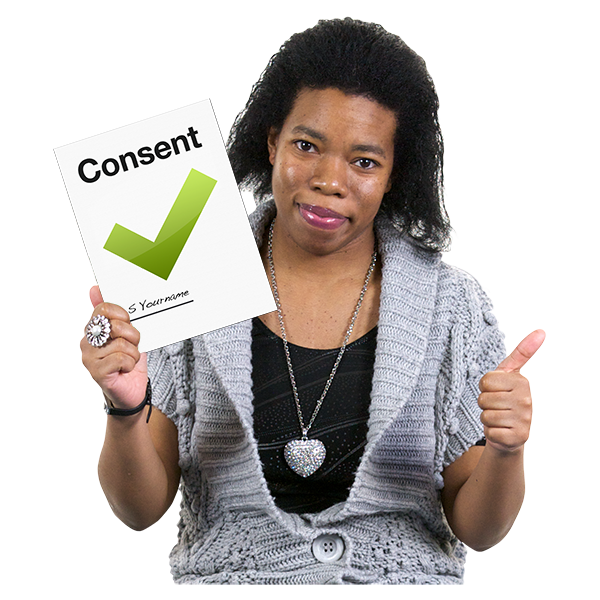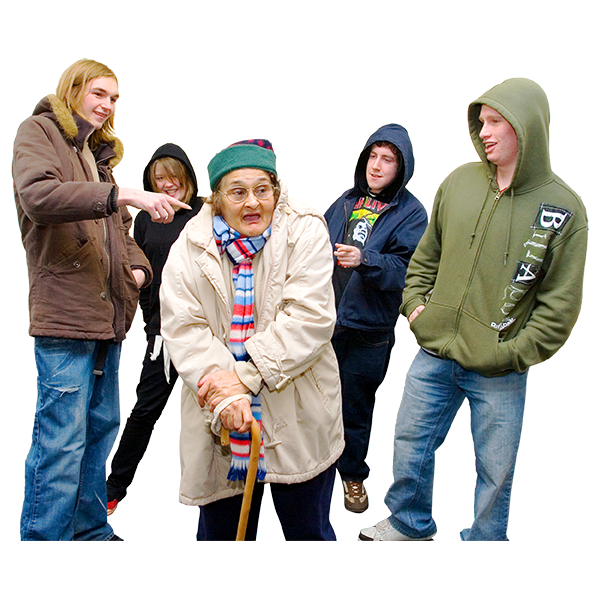It is estimated 1,200 people with a
learning disability
 A learning disability is to do with the way someone's brain works. It makes it harder for someone to learn, understand or do things.
die avoidably every year when timely access to good quality care could have saved them [i].
A learning disability is to do with the way someone's brain works. It makes it harder for someone to learn, understand or do things.
die avoidably every year when timely access to good quality care could have saved them [i].
This month’s Learning Disability Mortality Review (LeDeR) report lays bare the devastating facts that people with a learning disability still die over 20 years earlier than the general population and 40% of DNACPR orders are followed incorrectly for people with a learning disability.
Mencap’s new Chair of Trustees, Dame Carolyn Fairbairn, spoke candidly to BBC Radio 4’s Woman’s Hour this morning about her sister Diana, who tragically became one of these statistics last year.
Dame Carolyn said, “She was somebody who lit up a room when she came in. Everyone who knew her adored her. She smiled all the time. She was an extraordinary vivacious person who loved life.”
In late 2021, Diana was admitted to hospital, and the family believe that the unconscious bias Diana faced because of her learning disability, and the lack of understanding of her needs, led to her untimely and avoidable death.
“She went into hospital with a gall bladder infection… She was going to be discharged in time for Christmas but she had to have a minor operation to help with her feeding. On the evening before she was supposed to come home, we got a call that she had died.
“She’d been placed in a room on her own because she made noise, despite the fact that she couldn’t communicate. She could not press the red button and say I’m in pain, I need help. And she was put on a three-hour observation round.
“She died of asphyxia on her own – she had choked on the contents of her stomach. She was basically neglected during the last days of her life. She died on her own in such a dreadful way – it absolutely haunts us. We do feel her death was avoidable.”
Diana also had a do not attempt cardiopulmonary resuscitation (DNACPR) placed on her hospital file without the family’s
consent
 Consent is when you say yes to something, like an operation, or Mencap using your photo for a story. You may have to sign something to say yes. If you can't make your own decisions, someone else can say yes or no for you. They must think about what is right for you.
- something which too many families of people with a learning disability have faced.
Consent is when you say yes to something, like an operation, or Mencap using your photo for a story. You may have to sign something to say yes. If you can't make your own decisions, someone else can say yes or no for you. They must think about what is right for you.
- something which too many families of people with a learning disability have faced.
At Mencap, we know that having a learning disability is not – and should not be - life limiting, and it is essential that people with a learning disability can access good quality and timely care that meets their needs.
Dame Carolyn was recently appointed as Mencap’s new Chair of Trustees. As part of her new role, she wants to support its work to highlight the health inequalities faced by people with a learning disability and find solutions to help eliminate
discrimination
 Discrimination is when someone is treated differently (usually in a bad way) because of things like their disability or their
religion
Discrimination is when someone is treated differently (usually in a bad way) because of things like their disability or their
religion
 Religion is to do with the things you believe about the world. For example you may believe there is a god or something else. Examples of religions are Christianity, Hinduism, Islam and Judaism.
.
and unconscious bias.
Religion is to do with the things you believe about the world. For example you may believe there is a god or something else. Examples of religions are Christianity, Hinduism, Islam and Judaism.
.
and unconscious bias.
Dame Carolyn said, “What I have realised is that the tragedy that happened to us as a family and to Diana is happening almost on a daily basis in our hospitals. There are problems around unconscious bias... that we see the disability first and foremost and perhaps our first emotion is pity rather than actually this person loves life and has a wonderful quality of life. That was the case with my sister.
“I want to try and prevent this tragedy happening to other families.... There has been progress and it is wonderful to see that, but there is so much more to do. Unless we get really concerted action here, bringing together all the people who can make a difference - the health professionals, organisations like Mencap, and people with a learning disability themselves because they can change perceptions.
“It is the first time I have taken on something I feel quite as passionate about on personal grounds, but I want to use what I have learnt, because it's been so personal, to try and bring people together to make change for so many other families.”
Mencap works collaboratively, fighting for equal
rights
 Rights are the things everyone should be allowed to do like have a say, or go to school.
, campaigning for greater opportunities, and challenging attitudes and prejudice for the 1.5 million people with a learning disability in the UK. Mencap has long campaigned on health care – and avoidable deaths - since the Death by Indifference report in 2007. Recently, Mencap has supported campaigner Paula McGowan to introduce training for all healthcare professionals - The Oliver McGowan
Mandatory
Rights are the things everyone should be allowed to do like have a say, or go to school.
, campaigning for greater opportunities, and challenging attitudes and prejudice for the 1.5 million people with a learning disability in the UK. Mencap has long campaigned on health care – and avoidable deaths - since the Death by Indifference report in 2007. Recently, Mencap has supported campaigner Paula McGowan to introduce training for all healthcare professionals - The Oliver McGowan
Mandatory
 Mandatory means that something must be done.
Training – to provide better health and social care outcomes for people with a learning disability and/or
autism
Mandatory means that something must be done.
Training – to provide better health and social care outcomes for people with a learning disability and/or
autism
 Autism is a disability. Autistic people find it difficult to understand what other people think and feel. They also find it difficult to tell people what they think and feel. Everyone with autism is different.
.
Autism is a disability. Autistic people find it difficult to understand what other people think and feel. They also find it difficult to tell people what they think and feel. Everyone with autism is different.
.
-ENDS-
Notes to editors:
[i] Glover, G. and Emerson, E. (2013), “Estimating how many deaths of people with learning disabilities in England could be prevented by better medical care”, Tizard Learning Disability Review, Vol. 18 No. 3, pp. 146-149.